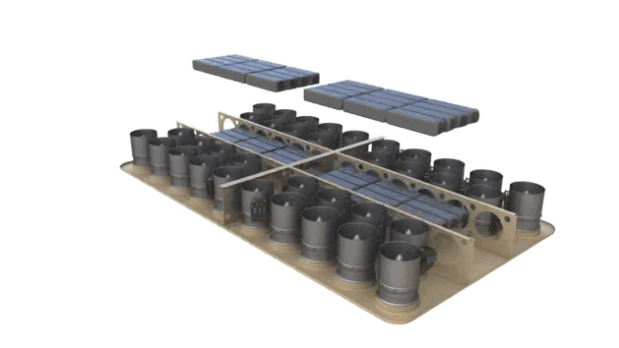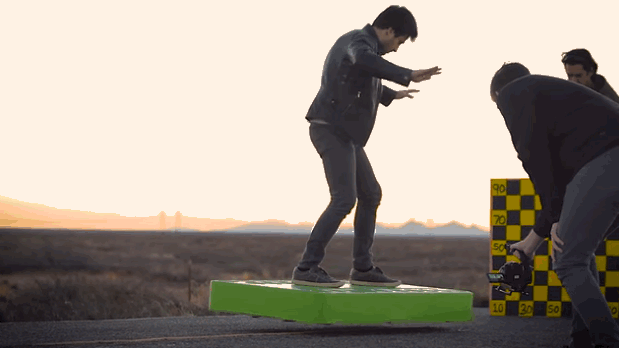
Just like Harry Potter's invisibility cloak, Marty Mcfly's hoverboard, featured in "Back to the Future" Part II and III, has captured the imagination of both fans and scientists. But despite numerous claims, no one has been able to replicate the flying skateboard that bounced off walls and easily outpaced cars. Now thanks to US-based ARCA Space Corporation, hoverboards may finally become a reality.
Made of composite materials, the ArcaBoard is fitted with 36 high-power electric ducted fans that move at 45,000 revolutions per minute (rpm). This helps create up to 272 horsepower and 430 pounds of thrust, enabling the board to float about a foot above the ground. A built-in stabilization system that can be controlled with a smartphone via Bluetooth allows the hoverboard to remain flat while in motion. For a more immersive experience, users can turn the system off and manually guide the board with the tilt of their bodies. The best part? The board can be used over any terrain.

Those hoping to use the skateboard to 'fly' to school or to try outrun cars will be disappointed. That's because the maximum speed the hoverboard can currently travel is just 20 km/h. Even more limiting is the fact that the amount of power needed takes its toll on the batteries, which means that the ArcaBoard only floats above ground for between three to six minutes, depending on the weight of the rider.
As for carrying it in your backpack like Mcfly did in the movies? Don't even think about it. Thanks to the electric fans and batteries, the 56 X 30 X 6-inch flying skateboard is not just clunky but also weighs 180 pounds and requires at least two people to carry it. While the company has yet to release a video with the sound the hoverboard makes as it flies along, experts believe it may be unbearably loud due to the noise generated by the 36 electric ducted fans. Whether that is true, will be revealed when the company ships out the first ArcaBoard in April 2016.

But most of us will not have to worry about the ArcaBoard's limitations. That's because its $19,900 USD price tag is high enough to keep it out of reach for most average consumers. And that does not include the $4,500 USD charging system called ArcaDock that can power up the hoverboard in just half hour instead of the six hours it takes otherwise.
But do not despair. The company who is currently taking orders for the first versions of both, the ArcaBoard and ArcaDock, promises that future versions will not only be cheaper but also, able to stay aloft longer. So is Marty Mcfly's hoverboard in your near future? We certainly hope so!
Resources: gizmag.com, mail.co.uk,arstechnica.com